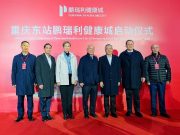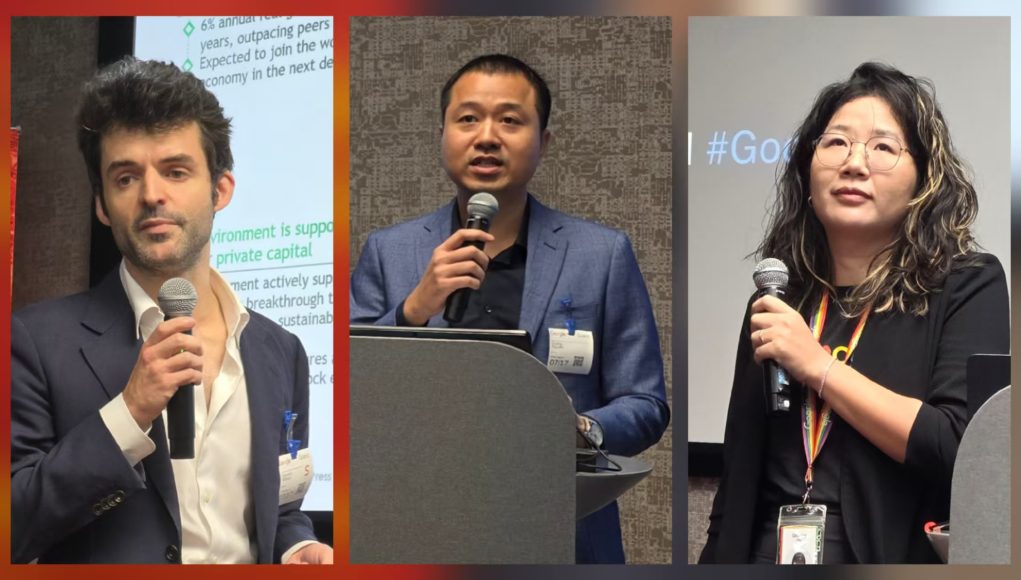(Singapore,17.07.2025)A delegation of nearly one hundred Vietnamese technology entrepreneurs visited Google Singapore today for the “AI Innovation Day” event, seeking to build networks, exchange insights, and explore regional opportunities. Co-Organized by Vietnam Trade Office in Singapore, Google Singapore and GITS, a network of founders from Vietnam’s innovation-driven companies, who engaged in dialogue with Singaporean counterparts on the evolving landscape of AI development, investment trends, and digital collaboration.
Vietnam has made artificial intelligence a national priority. Its AI strategy, launched in 2021, aims to position the country among the global top 50 and ASEAN top 4 by 2030. The country’s digital infrastructure is expanding rapidly, with household fiber-optic coverage reaching 82%, and internet speeds exceeding the global average. Vietnam currently operates 33 data centers and plans to add 6 to 10 submarine cables by 2030, including a Vietnam–Singapore cable system designed for both data and renewable energy transmission. The government is also in the process of drafting two major pieces of legislation: the Digital Technology Industry Law and the Personal Data Protection Law, which are intended to strengthen its digital governance framework and attract international investors.
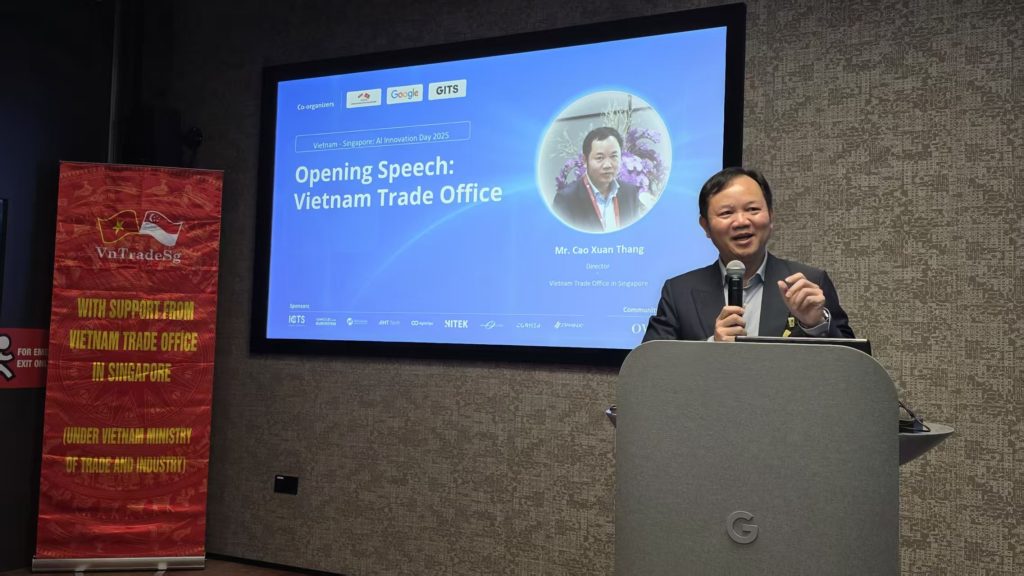
Cao Xuan Thang, Director of the Vietnam Trade Office in Singapore, delivered an address highlighting Vietnam’s AI roadmap, legal reform, infrastructure development, and talent initiatives. He noted that the country’s ICT industry generated US$170 billion in 2024—an increase of 30% over the previous year—and that AI now influences more than 80% of Vietnamese businesses. To meet the growing demand for talent, the government plans to train 5,000 semiconductor AI specialists, 7,000 cross-sector AI experts, and nurture approximately 500 AI startups by 2030.
Clement Vellieux of Boston Consulting Group described Vietnam as one of the most promising AI and tech investment destinations in Southeast Asia. Unlike countries that specialize in a narrow segment of the technology value chain, Vietnam exhibits strength across hardware manufacturing, software services, and consumer tech. Vellieux emphasized Vietnam’s increasing role in generative AI (GenAI), noting that global players like Nvidia have already established operations in the country. However, he also pointed to the absence of a new generation of AI unicorns, stressing the need to support the international scaling of Vietnamese tech enterprises.
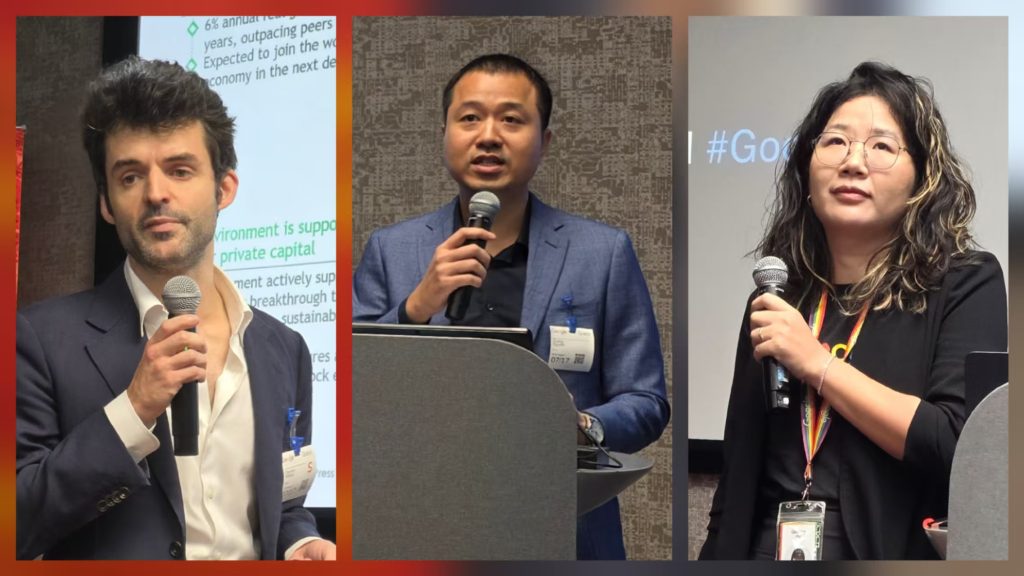
The event also featured a panel discussion on the current state of AI innovation in Vietnam and Singapore, moderated by Ellen Nguyen of ICTS. Speakers included Mike Feng of Innowave Tech, Pham Thanh Huu of IVS, Sujey Subramanian of PAG Asia Capital, and Esna Ong of Google. Each brought perspectives from manufacturing, services, investment, and platform technology.
Mike Feng spoke about AI’s accelerating impact on the manufacturing sector. He described three main areas of application: improving process consistency, addressing skilled labor shortages, and accelerating R&D cycles. He noted that multinational companies are leveraging AI to standardize quality across global factories, while small and medium enterprises are using AI to operate with leaner, more efficient teams. “What once required an entire department, a single person empowered by AI can now achieve,” Feng remarked.
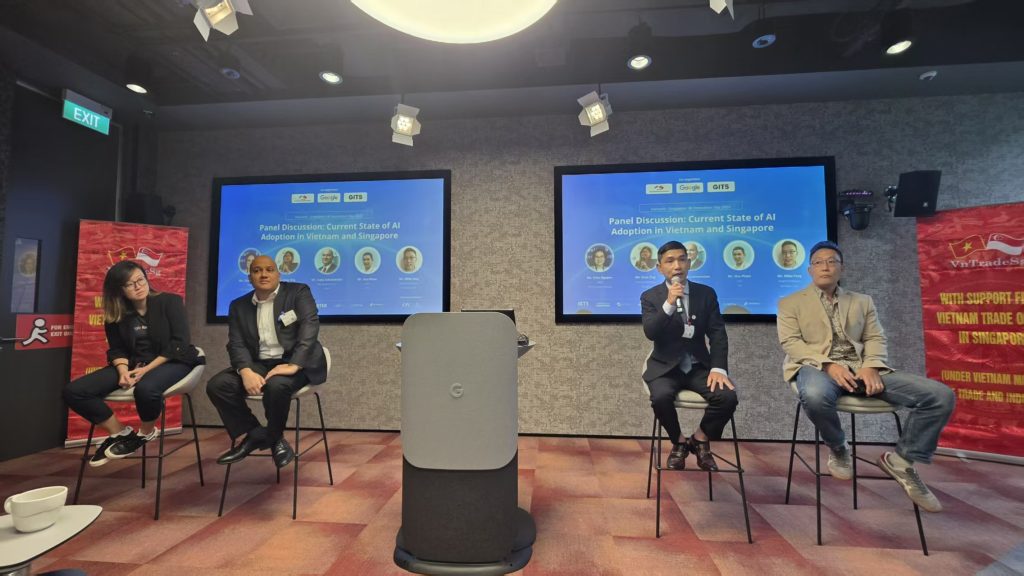
Pham Thanh Huu shared how AI is reshaping operations across his Vietnamese client base, which includes over 600 companies in manufacturing, finance, and insurance. He explained how banks and e-commerce firms have moved beyond process automation to cultural transformation, adopting AI chatbots and mobile-first onboarding. He also revealed that his team is deploying AI tools in legal and medical sectors to help foreign managers navigate Vietnam’s complex regulatory landscape. In addition to IVS, Huu has launched a robotics company focused on developing AI-integrated service robots.
Sujey Subramanian, who leads Southeast Asia investments for PAG Asia Capital, highlighted AI’s role in redefining the economics of IT services. His firm recently acquired Nash Tech, a Vietnamese software development and AI training firm with over 2,000 employees serving clients in the UK, US, and Australia. Subramanian observed that while individual project margins may decline due to AI’s efficiency, the overall volume of projects is increasing. He also praised the improved English proficiency of Vietnam’s younger tech workforce, calling the country well-positioned to become a global AI services hub. He noted that the rise of AI will likely push IT outsourcing firms away from traditional time-and-material pricing toward value-based models.
Esna Ong from Google provided a platform-level view of AI accessibility. She described AI as “the new internet”—a ubiquitous utility rather than a differentiator. She urged companies not to delay adoption. “Saying you’re an AI company today is like saying you’re an internet company in 2000,” she said.
In March 2025, Singapore and Vietnam elevated their bilateral ties to a Comprehensive Strategic Partnership (CSP), laying the institutional foundation for deeper collaboration in AI and technology.
Vietnamese tech companies have shown boldness in venturing into regional markets. Quang Nguyen, President of GITS Group, the event organizer, remarked that “Singapore is a regional hub — coming here allows us to tap into resource platforms, diverse perspectives, and new collaboration potential.”
Cao noted that the two countries have complementary strengths for strategic cooperation. “Vietnam offers a large and increasingly skilled pool of AI talent, a cost-efficient operating environment, and rapidly expanding data center infrastructure,” he said. “Meanwhile, Singapore brings advanced AI research capabilities, a strong international legal framework, IP protection, and global connectivity.”















